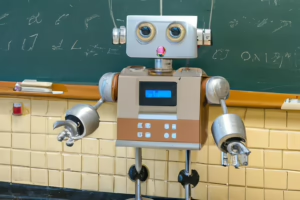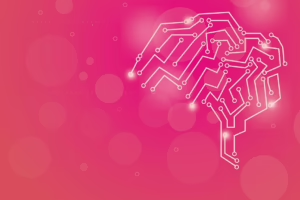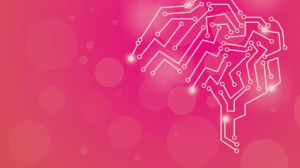The Fine Line: Distinguishing Fiction from Reality in AI Cinema
Introduction
As artificial intelligence (AI) steadily integrates into various aspects of life, its impact on the film industry is profound. AI-generated content has sparked a new debate: how do we differentiate between fiction and reality when both realms increasingly blur? This article explores the implications of AI cinema on storytelling, ethics, and audience perception, all while examining how the advent of AI technology is reshaping the landscape of filmmaking.
The Emergence of AI Cinema
The term "AI cinema" refers to films that are either produced using AI technologies or feature AI as a significant thematic element. This era began in earnest in the 2010s with the advent of machine learning and natural language processing, allowing filmmakers to leverage these tools for scriptwriting, editing, and even acting.
A Brief History of AI in Film
AI has been a topic in filmmaking since the 20th century, with movies like "2001: A Space Odyssey" (1968) portraying sentient machines. However, recent advancements have enabled more practical applications of AI in screenwriting, visual effects, and character development. For instance, the short film "Sunspring," written entirely by an AI named Benjamin, showcased the potential of machine-generated narratives and raised crucial questions about authorship and creativity [1].
The Creative Process
AI tools facilitate the creative process by automating mundane tasks and assisting writers, directors, and editors. However, the ease of production raises significant questions about authenticity and originality in cinema.
AI as Co-Creator
AI can analyze vast datasets to generate story ideas, dialogue, and even entire scripts. While this helps streamline the creative process, the question arises: if a machine contributes to the creation, who is the true author? Is the AI merely a sophisticated tool, or does it become a co-creator with agency? This issue evokes deep philosophical inquiries about the nature of creativity and human expression.
Historical Context
Historically, authorship in the arts has been a contested territory. The Romantic Movement emphasized the artist’s individual vision, contrasting with classical notions that viewed creativity as a craft. The advent of AI reintroduces this debate, compelling society to reconsider what it means to create and who gets to claim that identity [2].
Thematic Implications of AI in Film
Thematically, AI cinema often explores concepts of identity, consciousness, and the nature of reality, echoing traditional sci-fi narratives while adding layers of complexity due to its real-world applications.
Identity and Consciousness
AI-generated narratives frequently delve into questions of identity and consciousness. Films such as "Ex Machina" (2014) and "Blade Runner 2049" (2017) challenge our understanding of what it means to be human. As AI technology advances, these themes resonate more strongly, prompting audiences to reflect on their relationships with machines and each other [3].
Reality in AI Cinema
The use of hyper-realistic visual effects often leads to a phenomenon called the "uncanny valley," where AI-created characters appear almost human but trigger feelings of unease. This raises questions about authenticity in portrayal; can an AI-generated character truly resonate emotionally with viewers, or will it always remain a facade?
Ethical Considerations
As AI cinema evolves, ethical dilemmas crop up, particularly regarding permissions, copyrights, and representation.
Copyright and Authorship
The issue of copyright becomes complicated when AI systems can autonomously generate scripts or digital actors. Traditional copyright laws were designed with human creators in mind, and adapting these laws to accommodate AI-generated content presents numerous challenges [4].
Representation
Moreover, AI-generated characters can perpetuate stereotypes and biases present in the training data. This raises ethical concerns about representation in cinema. If AI learns from existing films that are biased or exclusionary, the resultant content risks reinforcing those same tropes, thus impacting societal norms about race, gender, and sexuality [5].
Audience Perception and Reception
The audience’s role is crucial in navigating the fine line between fiction and reality in AI cinema. Viewer engagement shapes both the interpretation of AI films and the technology’s future development.
Trust in Authenticity
As AI-generated content gains popularity, audiences grapple with trust in authenticity. The ability to distinguish between real and AI-generated performances invites skepticism. Viewers may question the validity of emotional responses and the credibility of narratives presented on screen [6].
The Impact of Deepfakes
Deepfake technology has emerged as a double-edged sword in this conversation. While it can create remarkable visual experiences, it also has been misused for malicious purposes. Audiences now face a new challenge: discerning what is real and what is fabricated. As trust in media diminishes, the implications extend beyond film and into news and social discourse [7].
A New Aesthetic
With AI technologies becoming more prevalent, they are also leading to the development of new aesthetics in film. Lexicons of storytelling and visual representation are being redefined.
Visual Effects and the Spectacle
Incorporating AI-generated visual effects creates spectacles that captivate audiences. Movies like "Avatar" (2009) and its sequel utilized AI in ground-breaking ways, presenting new worlds that redefine what audiences expect from cinematic experiences [8].
Narrative Structures
AI also enables filmmakers to experiment with more complex narrative structures. Machine learning algorithms can analyze thousands of films to identify engaging plot points, allowing creators to play with structure and pacing in innovative ways. As a result, traditional storytelling forms may give way to unique narratives that challenge conventional expectations.
Case Studies in AI Cinema
To further understand the implications of AI in cinema, several case studies illustrate both the potential and the pitfalls of this technology.
"Sunspring"
The short film “Sunspring,” written by an AI named Benjamin, was an experimental look at machine-generated narratives. Its unusual plot and dialogue highlight the limitations and creative possibilities of AI. While it showcased AI’s ability to generate text, it also revealed inherent flaws in coherence and emotional depth. The film raises questions about the value of human intuition in storytelling [9].
"The Irishman"
Martin Scorsese’s "The Irishman" (2019) used AI-based de-aging technology to make actors appear younger. While this was hailed as a technical marvel, it fueled debates about the ethics of digital manipulation and the authenticity of performance. Does the technological enhancement of actors enhance the story or detract from the raw human elements that great cinema often captures? [10].
The Future of AI Cinema
As we look to the future, AI’s role in cinema will likely expand. Given the rapid evolution of technology, significant changes in creative practices and audience engagement are imminent.
New Formats
Emerging technologies like virtual reality (VR) and augmented reality (AR) are already blending narratives with interactivity, allowing audiences to engage more deeply with the content. AI can facilitate this by creating dynamic, personalized viewing experiences tailored to individual viewers.
Ethical Frameworks
The growing intersection of AI and cinema calls for robust ethical frameworks. Filmmakers will need guidelines to navigate issues related to copyright, representation, and authenticity. Industry stakeholders must collaborate to develop norms that promote responsible and inclusive practices in AI cinema.
The Role of Regulation
As AI continues to evolve, so too must our regulatory frameworks. Policymakers need to understand the nuances of AI in media to implement laws that protect both creators and audiences. Robust discussions surrounding intellectual property rights and ethical standards will become increasingly essential to maintain the integrity of creative arts in the face of technological advancement [11].
Conclusion
The emergence of AI in cinema presents thrilling opportunities and daunting challenges, pressing us to confront our definitions of creativity, authorship, and reality. As the line between fiction and reality blurs, it is essential for viewers, creators, and policymakers alike to engage in a constructive dialogue. Only then can we ensure that this new frontier in filmmaking contributes positively to the cultural landscape while addressing ethical considerations that come to the fore with this technological prowess.
References
- Kahn, S. (2018). "Machine Generated Writing: Are AIs Capable of Storytelling?" Cinematic Journalism.
- Smith, J. (2020). "The Role of Authors in an AI-Driven World." Journal of Media Ethics.
- Ford, L. (2019). "Reflections on Humanity: AI’s Exploration of Consciousness in Cinema." Screen Studies.
- Kim, R. (2021). "Copyright Challenges in AI Generated Content." Intellectual Property Quarterly.
- Jones, D. (2020). "The Biases in AI and Their Effect on Representation in Film." Journal of Cultural Studies.
- White, M. (2021). "Audience Trust in an Era of Synthesized Media." Communication and Society.
- Lee, C. (2022). "Deepfakes and Authenticity: Navigating the New Normal." Journal of New Media Studies.
- Taylor, E. (2022). "Spectacle and Technology: The Future of Visual Effects in Cinema." International Journal of Film Studies.
- Williams, J. (2021). "Sunspring and the Future of AI in Storytelling." Film and Media Studies.
- Brown, A. (2020). "De-Aging in Film: Ethics and Aesthetics in Digital Manipulation." Cinema Journal.
- Patel, M. (2023). "The Regulatory Framework for AI in Creative Industries." Policy and Governance Review.


























Add Comment